Are you considering a non-compete agreement for your business but unsure about how to approach it? Crafting a clear and fair letter can make all the difference in ensuring both parties understand the terms and conditions involved. It's essential to strike a balance between protecting your business interests and allowing your employees to thrive in their careers. Keep reading to discover a comprehensive template that can guide you through the process of creating a non-compete agreement letter!

Introduction and Purpose
The Non-Compete Agreement serves as a critical legal instrument designed to protect a company's proprietary information and competitive edge, particularly in fast-paced industries such as technology, pharmaceuticals, or finance. This agreement aims to prevent employees from engaging in activities that directly compete with the business's interests for a specified duration and within a defined geographic region, often outlined in various sections detailing the scope of restrictions. The purpose of this document is to establish clear expectations between the employer and employee regarding confidential information, trade secrets, and sensitive data, ensuring that vital business interests remain safeguarded during and after the employment term. Compliance with this agreement is crucial for maintaining fair competition and fostering a secure business environment.
Non-Compete Obligations
Non-compete obligations require individuals to refrain from engaging in similar business activities that compete with a former employer. Such agreements, often drafted for employees in various sectors, aim to protect sensitive information and trade secrets. These obligations typically specify a geographical area (such as a specific state or city), a set duration (ranging from six months to two years), and the type of work restricted (such as roles in competing companies). For instance, technology firms may impose stricter non-compete clauses due to rapid innovation cycles, while service industries may have more lenient restrictions. Violating non-compete clauses can lead to legal actions and financial penalties, reinforcing the importance of understanding these agreements before signing.
Duration and Geographic Scope
A non-compete agreement outlines the terms under which an employee agrees not to engage in competitive activities after leaving a company. The duration typically ranges from six months to two years, depending on the industry and the sensitivity of the information involved. The geographic scope varies widely, covering local, regional, or even national parameters, often defined by the business's operational areas, such as New York City or the state of California. Clear specifications are crucial for enforceability, ensuring that the clause protects the company's interests without imposing unreasonable restrictions on the employee's future career opportunities.
Compensation and Benefits
Compensation packages for non-compete agreements often include a base salary, typically ranging from $50,000 to $150,000 annually, contingent upon industry standards and the company's financial capacity. Additional incentives such as bonus structures (averaging 10-20% of the base salary) may be offered, particularly for high-performing roles. Benefits packages frequently encompass health insurance plans (including medical, dental, and vision coverage) with company contributions, retirement plans (401(k) matching, up to 6%), and paid time off (averaging 15-20 days per year). Professional development support, such as tuition reimbursement (up to $5,000 annually), is also common. Severance packages may be stipulated in case of early termination of the agreement, providing a safety net equivalent to one month's salary for each year of employment, ensuring a smoother transition for the employee.
Confidentiality and Enforcement Terms
A non-compete agreement outlines the terms to protect proprietary business information and prevent competition. The agreement typically includes clauses on confidentiality to safeguard sensitive data, such as client lists and trade secrets. Enforcement terms specify the duration of the non-compete period, commonly ranging from six months to two years, and the geographical scope, covering specific regions or markets. Violations may result in legal action, including injunctions or monetary damages. Clear definitions of what constitutes competition, alongside relevant state laws, play a crucial role in the enforceability of the agreement. Additionally, the need for mutual consideration often underlines the importance of fairness in these contracts.
Letter Template For Non-Compete Agreement Offer Samples
Letter template of Revised Non-Compete Agreement for Existing Employees.
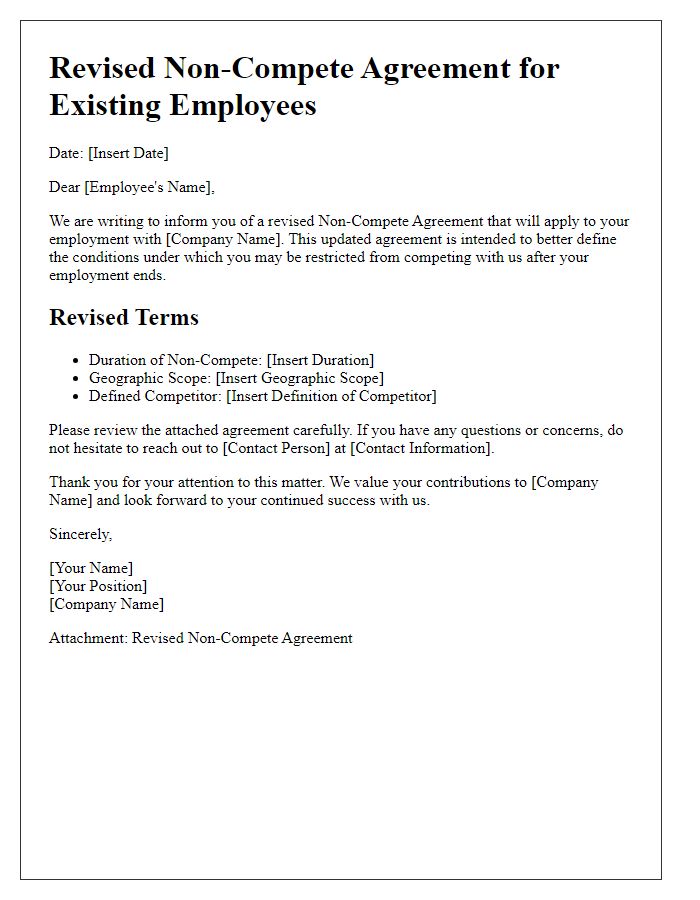
Letter template of Non-Compete Clause Inclusion for Partnership Agreements.
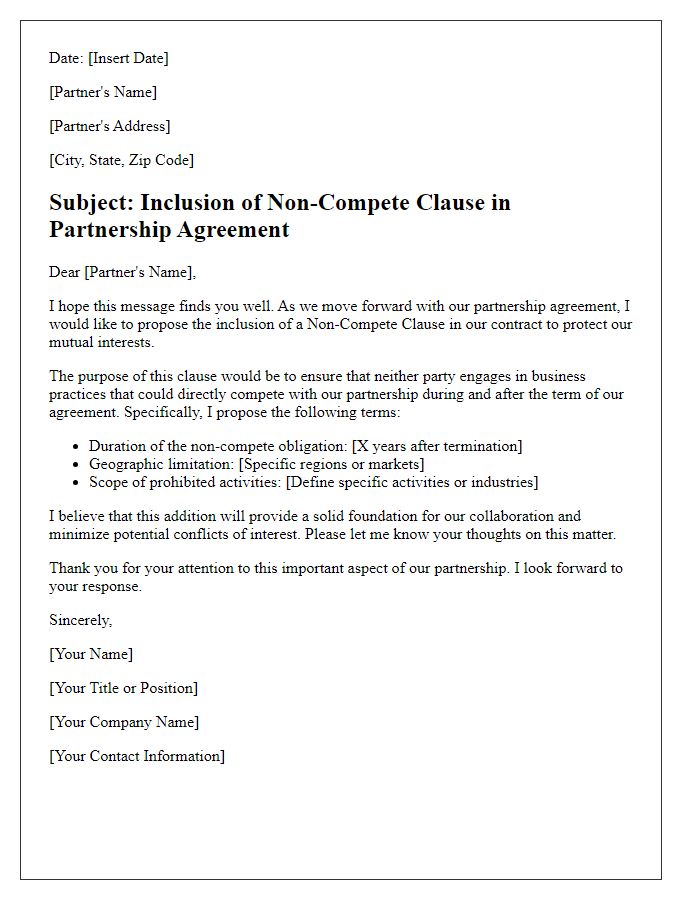

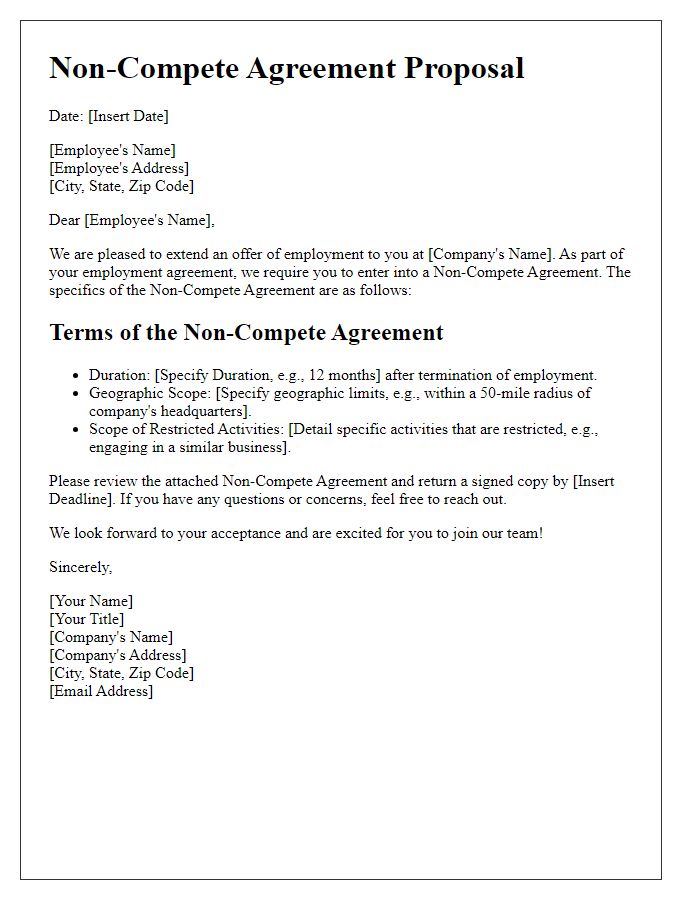
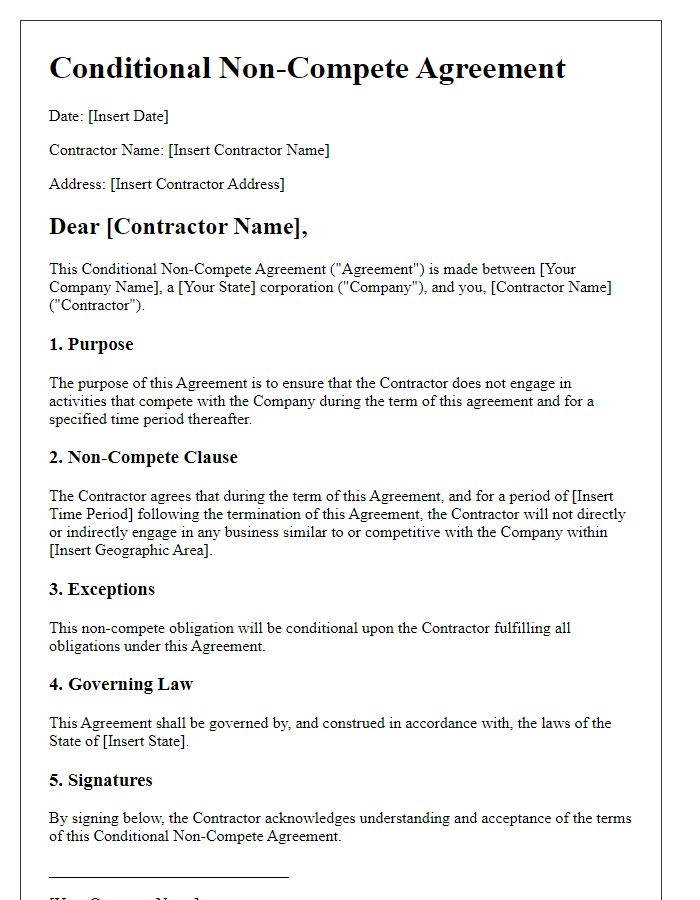
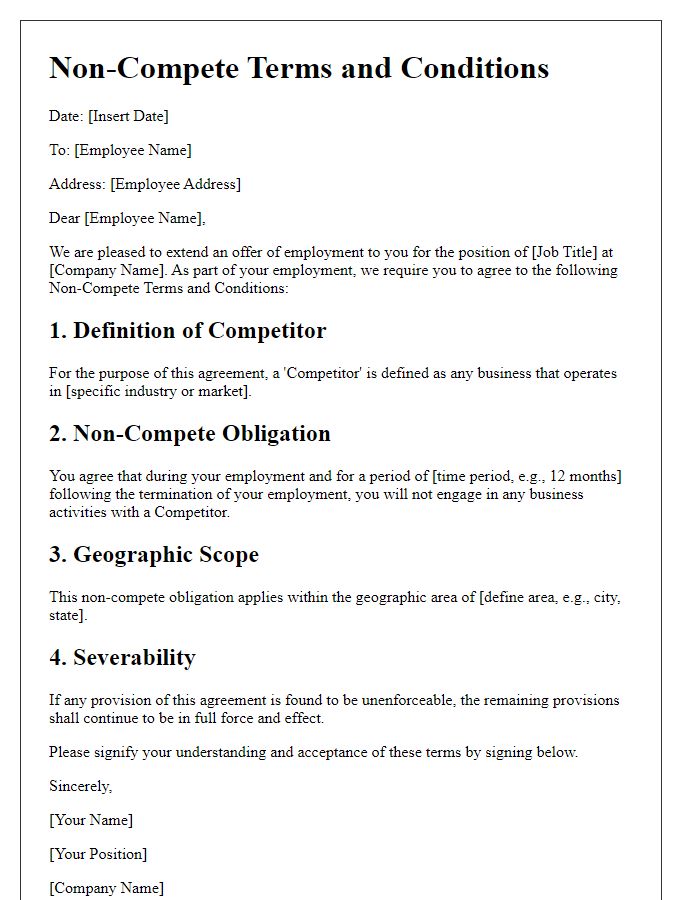
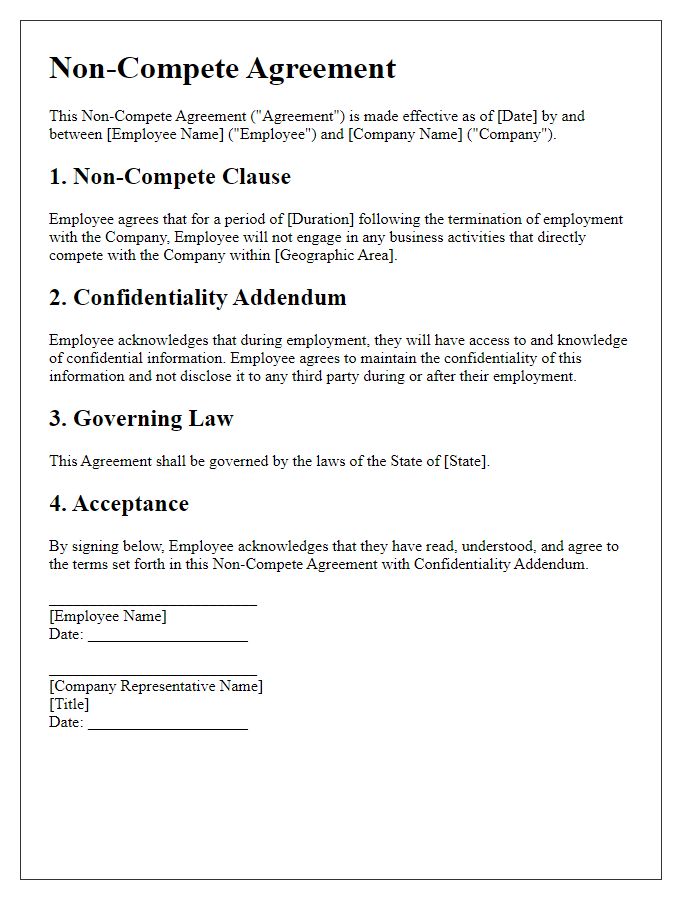
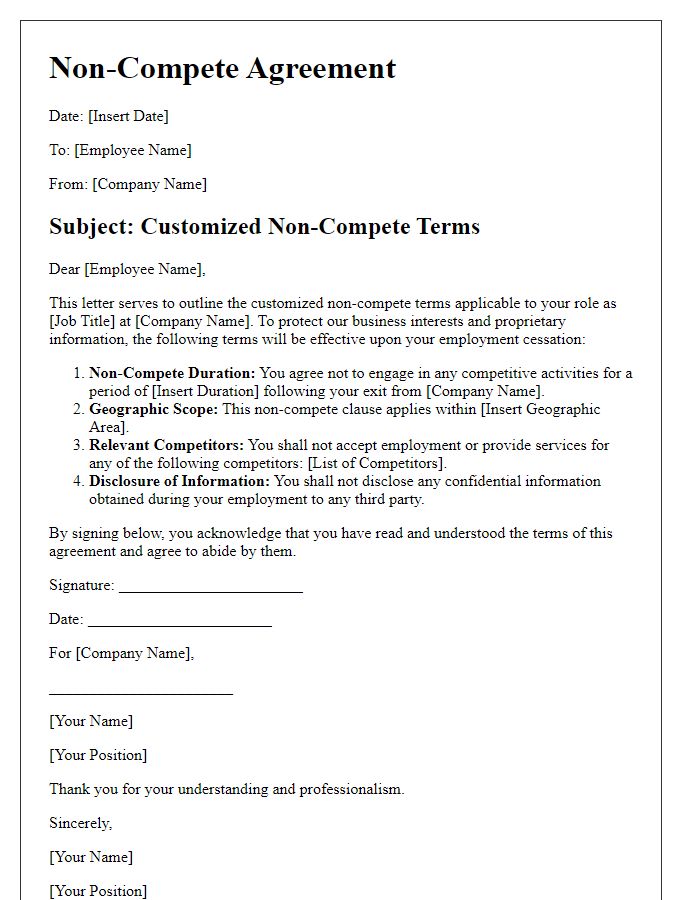
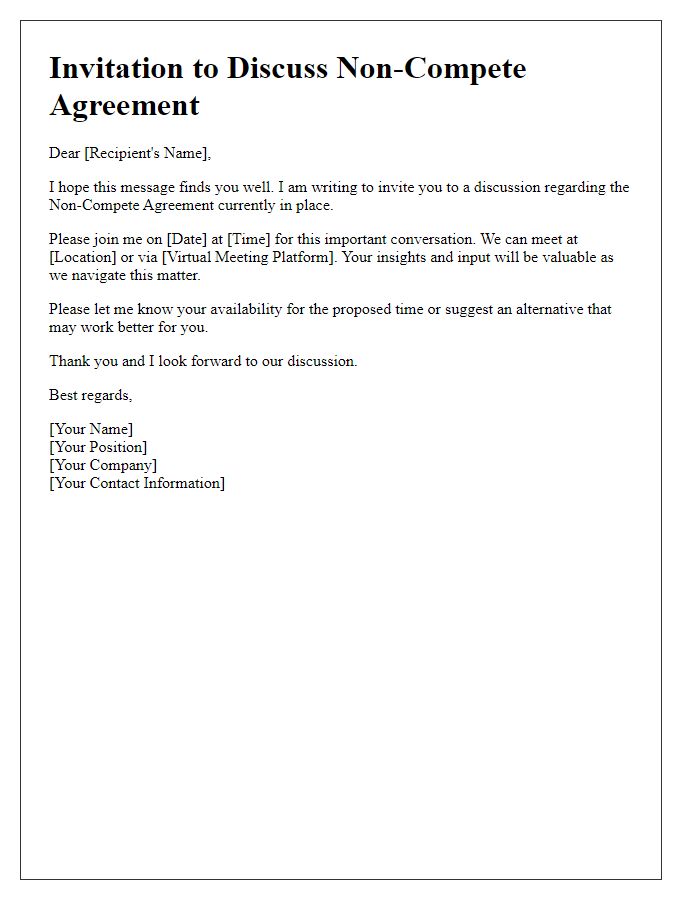
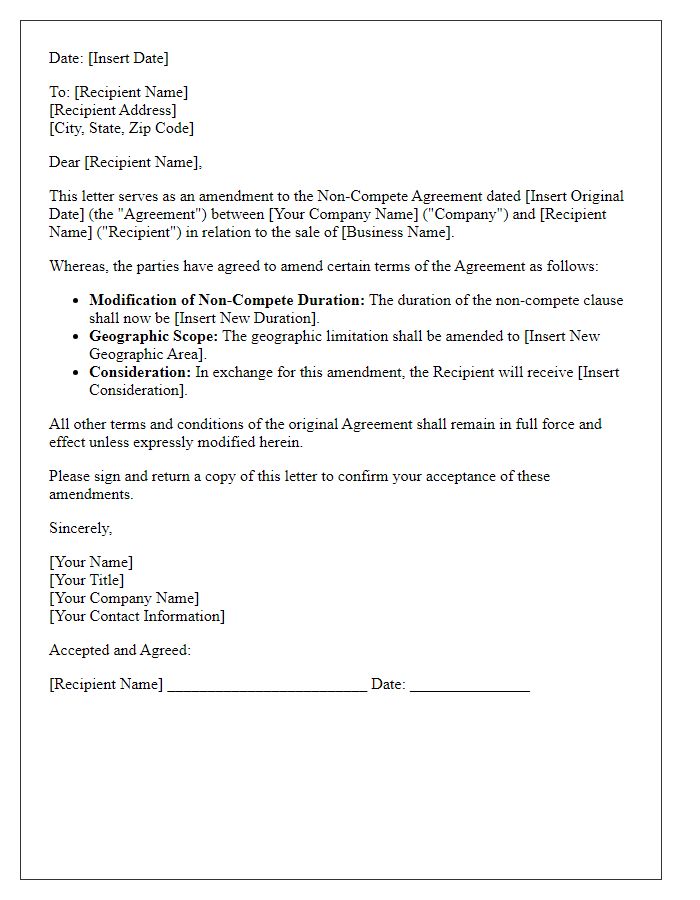
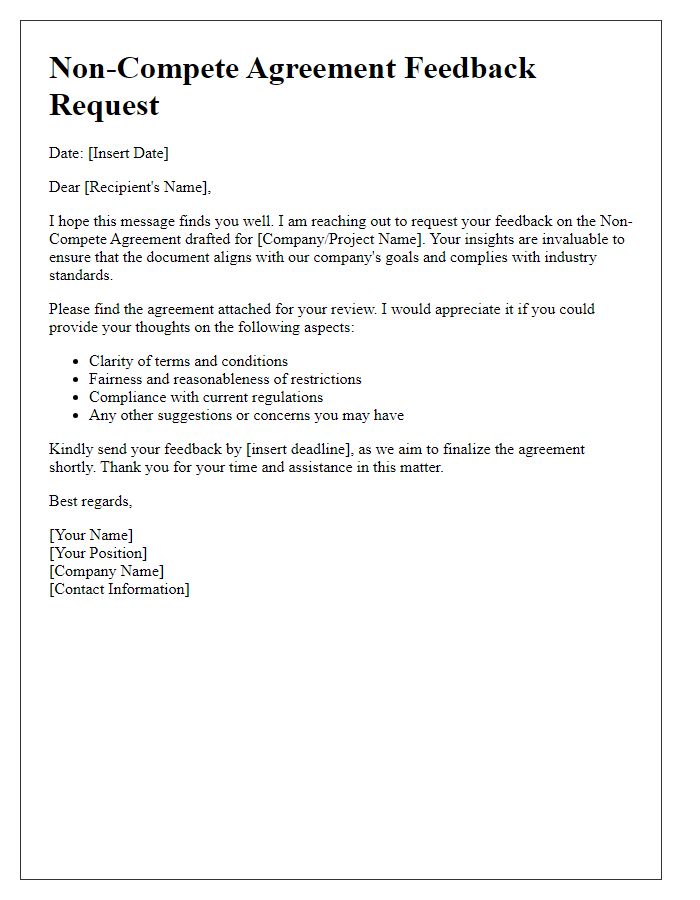


Comments